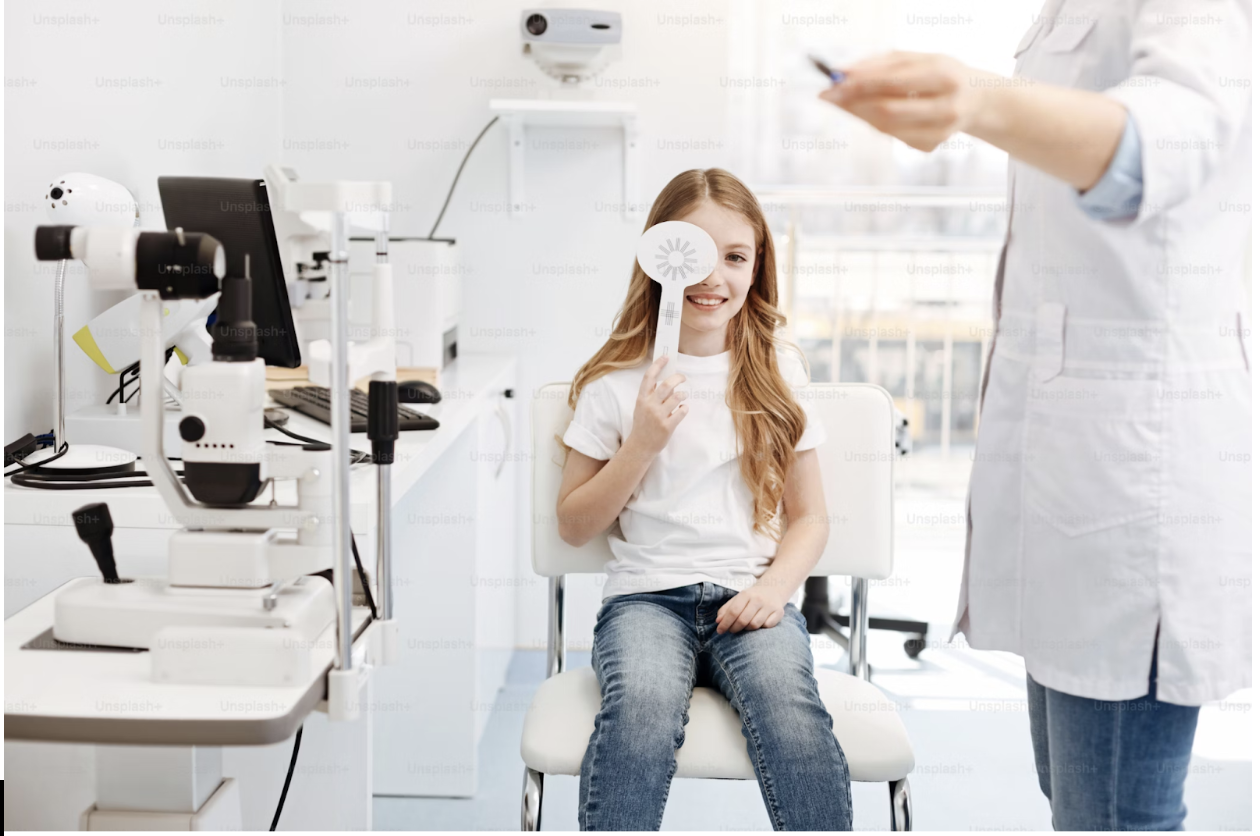How to Fight Myopia in 2024

As screen time continues to rise and your lives become more digitally focused, myopia (or nearsightedness) is becoming a growing concern for people of all ages. With the newest developments in eye care and changes to your lifestyle, there are now effective ways to control and even slow down the progression of myopia. In this blog, you will explore how to fight myopia in 2024.
1. Eye Exercises and Techniques
Eye exercises can strengthen your eye muscles and improve focus, which may help reduce myopia. One popular exercise is to focus on an object close to you for 10 seconds and then shift your focus to something far away for another 10 seconds. Repeat this several times.
Another technique is the "palming" exercise, where you rub your hands together to create warmth, then gently place your palms over your closed eyes for a few minutes. This can help relax the eye muscles. Regularly doing these exercises can improve eye health and may help slow down myopia progression.
2. Nutrition for Eye Health
Eating a healthy diet is vital for maintaining good eye health and fighting myopia. Eat foods that are high in omega-3 fatty acids and vitamins A, C, and E. Carrots, spinach, kale, and fish like salmon are excellent choices. These nutrients help protect the eyes from damage and support overall vision.
Also, stay hydrated by drinking plenty of water, as proper hydration helps keep your eyes moist and comfortable. Reducing sugar and processed foods can also be beneficial for your eyes. By eating a balanced diet, you can promote better eye health and potentially reduce myopia risk.
3. Advanced Treatments for Myopia
If lifestyle changes and exercises aren’t enough, there are advanced treatments available for myopia. One option is orthokeratology, which involves wearing special contact lenses overnight to reshape the cornea and improve vision during the day.
Another option is using multifocal or bifocal glasses, which can help reduce the progression of myopia in children and teenagers. Some eye drops, like atropine, have also shown promise in slowing down myopia in young people.
These treatments can be effective in managing myopia and improving vision, so it’s essential to discuss these options with your eye care professional.
4. Consulting an Eye Care Professional
Regular visits to an eye care professional are crucial in fighting myopia. An optometrist or ophthalmologist can provide comprehensive eye exams to assess your vision and detect any changes in your eyesight.
They can also recommend personalized strategies to help manage myopia, including suitable glasses or contacts and advanced treatments. If you have children, taking them for regular eye exams can help catch myopia early, allowing for timely intervention.
Don’t hesitate to ask questions about your eye health, as getting professional advice is one of the best ways to effectively combat myopia and maintain good vision.
Maintain a Healthy Vision in the Modern World
Taking proactive steps to combat myopia is essential for maintaining healthy vision in today's digital world. For a deeper understanding of this condition, check out resources on what is myopia. Prioritize your eye health today and enjoy a clearer tomorrow!
- Family fitness (17)
- Technology (11)
- Date night (2)
- Dating (6)
- Diet (15)
- Child Fears (2)
- Mom Tips (223)
- Family meals and cooking (9)
- Sleep (34)
- Education (29)
- Decorating (52)
- Family Health (135)
- Finances (27)
- Caring and Empathy (5)
- Parenting (142)
- Getting Organized (16)
- Work and Career (74)
-
Family Home
(139)
- Garden (5)
- Sibling Tips (1)
- Bringing Home Baby (61)
- Fitness and Nutrition (23)
- Motherhood (21)
- Self Care (19)
- Family Fun (42)
- Gifts and Shopping (51)
- Travel (101)
- Mental Health (60)
- School and After School (46)
- Safety (77)
- Special Needs (8)
- Adoption (4)
- Allergies (2)
- Development and Toys (17)
- Pregnancy (57)
- Activities and Play (33)
- Finding Balance as a Parent (22)
- Beauty (25)
- Teens (10)
- Menopause (3)
- Teen Health (12)
- Homeschooling (16)
- Mom'Preneurs (8)
- Lifestyle (6)
- Starting a Family (2)
- Teen Life and Challenges (5)
- Fashion and Style (40)
- Divorce (7)
- Sports (11)
- Marriage and Wedding (14)
- Toddlers (6)
- Pets (39)
- Shopping (26)
- Nature and Outdoors (9)
- Moving (25)
- Family (18)
- Shopping or Gear (9)
- Food and Nutrition (38)
- Holiday Fun (8)
- Yoga (1)
- Party (14)
- Maternity (3)
- Surrogate (2)
- Meditation (3)
- Relationship (4)
- College (2)
- Dental (23)
- Kids Entertainment (4)
- Elderly and Extended Family (7)
- Cleaning (5)
- Swaddling (2)
- Postpartum (5)
- Birth (6)
- Baby Health (12)
- Mom Health (21)
- Mom Health (5)
- Beauty (10)
- Conception (1)
- ADHD (4)
- Feeding (1)
- Music (2)
- Exercise (5)
- Workout during pregnancy (1)
- Fertility (7)
- Culture (1)
- Conscious Living (1)
- Autism (3)
- Medical (17)
- Daycare (8)
- Loss and Grief (3)
- Spirituality (2)
- Registry (0)
- Prenatal (1)
- Breastfeeding (4)
- HRT and Hormones (1)
- Massage (1)
- Childcare (7)
- Nursery (3)
- Addiction (8)
- Renovation (12)
- Natural Medicine (1)
- Essential Oils (1)
- Business (4)
- Postnatal Care (4)
- Men's Health (2)
- Hair Care (2)
- IVF (2)
- Physical Body (1)
- Supplements (3)
- Sex and Sexuality (2)
- Baby Shower (3)
- Disability (2)
- Bath time (1)
- Environment (1)
- Flowers (0)
- Healing (5)
- Summer Fun (1)
- Alternative Healing (1)
- Legal (14)
- Keepsakes (1)
- Skin (2)
- Renovation (8)
- Home Design (12)
- Cars and Vehicles (2)
- Skin Care (2)
- Repairs (4)
- Stress (2)
- Security (1)
- Wellness (1)
- Hobbies (1)






